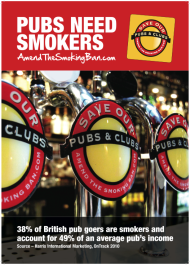My son, 15, is on work experience this week. He applied to the local Conservative association and was accepted following an interview. This morning, at nine o'clock, I drove him to their office in town. He looked very smart in his new shirt and tie.
On Saturday he insisted on getting his hair cut and last night he even polished his shoes (which wasn't a first but it was unusual).
All his friends are on work experience this week. Many, apparently, have been placed in schools and nurseries. I think it's a great idea. In my day (here we go) there was no such thing as organised work experience.
Outside school none of my friends worked. It never crossed our minds. We were all lazy as hell. Spoilt too, I suppose.
I remember, as an eight-year-old, doing Bob-a-Job Week as a member of the Cubs. We lived in Maidenhead in Berkshire and I would walk around in my Cub uniform, knocking on the doors of complete strangers, asking for work. I was usually pointed towards the garden and given some menial task such as sweeping up leaves, mowing the grass with a manual lawn mower, weeding or dead-heading old flowers.
It took years to recover from all that hard labour. Eventually, when I was 16, I took the plunge and stood in for someone who had a newspaper round but was on a two-week holiday. I absolutely loved it. It was the summer and - as I recall (through blue-tinted spectacles) - it was warm (but not too warm) and the sun shone without fail every single morning.
By then we were living in Wormit (yes, Wormit), across the river from Dundee. The round took me to the new houses up the hill where there was a fantastic view of Wormit Bay, the silvery Tay and the city beyond.
In those days newspapers were nothing like as bulky as they are today (I can't imagine how anyone can carry a large number of weekend papers from door to door) and it was possible to read every one as I walked from house to house. Bliss.
I was sorry to give up the round when the regular newspaper boy returned, but not sorry when I thought of having to do the same job in the depths of a cold and windy winter.
As a student I made a point of working each summer. Not because I wanted to, but I needed the money. In 1976, aged 17, I went on a two-week course at Elmwood College in Cupar to lean how to become a potato roguer. (As far as I know, this is a job peculiar to Scotland, for reasons, I believe, of climate.)
According to the Elmwood website:
Roguing is an essential practice in the production of healthy seed potatoes. It is the process of identifying and disposing of abnormal plants, including tubers and seed pieces. The affected plants may be diseased, another variety or simply different. The course includes instruction on:
* The identification of varieties of potatoes
* The identification of virus diseases and variations of potatoes
* General roguing practice
I did the course with two friends and once we had our certificates we hitched up with a ridiculously charismatic art teacher from Ellon. Bill Smith was ten years older than us. He had been roguing for years and knew lots of potato farmers north of Dundee so there was never a shortage of work.
There were days when I wanted to die but overall, for three consecutive summers, we had enormous fun. The great thing was, Bill didn't want to rogue for more than three or four weeks. Other roguers would bust a gut, working 14 hours a day for six weeks or more, and earn more money, but we wanted time to spend the money we had earned and in those days we would make £300-£400 each. Not bad for four weeks' work in the late Seventies.
The best summer job I ever had, though, was working in an Esso petrol station just outside Keswick in Cumbria. (It's still there, although it's a BP station now and the house that the original owner built on site was demolished years ago.)
There was great camerarderie between staff - which helped get us through the quieter periods - but much of the time we were really busy selling fuel, newspapers etc to local people and the hoards of holidaymakers streaming towards the Lake District in their cars and caravans.
Like my son this morning, I was a little nervous on my first day. I thought I would never learn how to use the till or engage the pumps. But I got the hang of it pretty quickly and the summer of '79 simply flew by ... helped, I am sure, by Maggie Thatcher's election victory a few months earlier.
Which brings me back to ...
 Friday, April 30, 2010
Friday, April 30, 2010 











